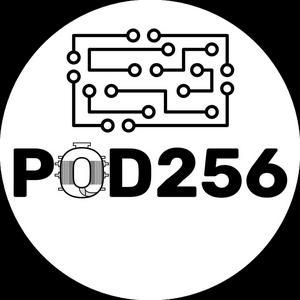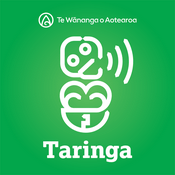104 episodes
- In episode 105, we finally get the stream dialed and dive straight into hands‑on Bitcoin mining and open-source hardware updates. We share the latest on Ember One: a sneaky IO voltage domain bug uncovered by Mujina dev Ryan led to a desk‑side hardware fix that’s now pushing ~2 TH/s (target is 3.6 TH/s across 12 chips with proper cooling). We unpack chip and hashboard design lore—from stacked voltage domains and reliability in long chains to the insider politics at big silicon shops like Intel. We talk why selling chips openly matters, how spec sheets unlock real builder momentum, and why third‑party system builders (think Epic Blockchain) can grease the skids between chipmakers and end products.
We cover Mujina’s trajectory toward a universal, Linux‑first, open firmware for miners—auto‑detect dreams vs config realities—and near‑term support for Ember One’s Intel boards and existing Antminers. We riff on home‑miner UX, remote monitoring, and agent/LLM tooling (cron‑job‑with‑superpowers, heartbeats, MCP integrations) to tune, alert, and manage miners. There’s buzz around FutureBit’s Apollo 3 (likely Auradine chips), open vs lawyered licenses, and the path from FPGA teaching rigs to community‑designed ASICs. We celebrate community hashing on the 256F HydroPool hash‑dash, solo‑block wins, and Heat Punk Summit prep (immersion hot tub included). Plus, a call to action: support developer freedom at change.org/billandkeonne. It’s a dense, builder‑first session on chips, firmware, agents, and bringing practical hashrate‑heat products to life. - In this live episode of POD256 (Ep. 104), eco is joined by Scott and Tyler—freshly minted 256 Foundation board members—for a fast-paced tour through open-source Bitcoin mining, DIY heat reuse, and the growing role of AI in hardware and firmware. We showcase D++’s new livestream overlay and the public monitoring dashboard at dash.256f.org/monitor.html, experiment with zap-based chat, and talk through the recent major difficulty drop and what it means for home miners. We revisit the 2021 China mining ban, S9 nostalgia, power and noise hacks, and the rise of an open mining stack—LibreBoard, HydraPool, and Mujina—aimed at dismantling proprietary control. From hot-tub immersion builds to sous vide steak with miner heat, we explore practical heat reuse, the need for reusable open components, and how AI agents can automate dashboards, tuning, and reverse-engineering—while warning about SaaS surveillance, Ring cameras, in-car spyware, and AI skill-store malware. If you want to support or learn, point hash to the 256 Foundation when we’re live, or spin up your own pool with HydraPool. Privacy, sovereignty, and open hardware are the path forward—bring your hash and your curiosity.
103. Closed-Source is Retarded: Building Bitcoin Miners for Homes, Businesses, and Beyond
04/2/2026 | 1h 19 mins.In this episode, eco & Tyler Stevens, CEO and founder of Exergy Heat, to dig into why open-source hardware and firmware are critical for the future of Bitcoin mining, especially for heat reuse in homes and businesses. We had a surprise visit from Skot and Joe Nakamoto dialing in from El Salvador, providing us with updates from the Plan B conference. We talk candidly about the constraints of closed, proprietary miners, shifting hardware trends (hydro-only, three‑phase, fewer 240V options), and how that undermines innovation, safety certification, and reliable product planning. We highlight the emerging open-source mining stack from the 256 Foundation, Mujina (firmware), open hash boards, control boards, and Hydra Pool, plus thriving communities (OSMU Discord, Hashrate Heatpunks, Jua Kali) that are lowering the barrier to actually build hardware with pick-and-place machines. We also cover real-world reference designs like a fully integrated sous vide heater driven by Miner power management and sensor feedback, the Heatpunk Summit bridging HVAC pros and mining devs, and Tether’s open-sourced MOS fleet platform. We close with mining-for-heat deployments (from buildings to towns), new pool dashboards, and how anyone can support decentralization by pointing hashrate to our donation-only Hydra Pool instance for the 256 Foundation.- In episode 102, we are joined by Ryan, lead developer of the Mujina firmware, for a debrief on Telehash #3 live demo and the momentum around the 256 Foundation’s fully open Bitcoin mining stack. We walk through the sous vide miner demo that cooked ribeyes while mining on three Ember One hashboards with custom water blocks, controlled by our Libre board prototype running Mujina and pointed at Hydra Pool; an eight-hour, live-streamed showcase of the entire open stack working together. We reflect on why releasing everything on GitHub from day one matters, how modularity in Mujina accelerates chip and board innovation, and why open tooling lowers the barrier for builders from hobbyists to mega-miners.
We dig into industry reactions from NEMS, interest from ASIC manufacturers, and the business case for open firmware at fleet scale. We discuss roadmap polish for Mujina (APIs, multipool support, power targets), Hydra Pool enhancements, HashScope share verification, and how open primitives enable better miner management, heating applications, and novel products. We shout out community contributors and hash renters who powered Telehash, preview Heat Punk Summit workshops (including Canaan’s home-mining session), and make the call for companies to support 256 Foundation grants that are already delivering outsized ROI for the entire mining ecosystem. 101. HydraPool, HashDash, and the Telehash Playbook: Open-Sourcing Bitcoin Mining
14/1/2026 | 1h 27 mins.In this episode, the 256 Foundation crew and developer d++ go deep on HydraPool, our open‑source Bitcoin mining pool stack, and the new HashDash and upcoming TeleDash dashboards powering the Telehash fundraiser stream. We unpack how HydraPool fits into the broader plan to open‑source the entire mining stack (hashboard, control board, firmware, and pool), its Rust-based design inspired by CKPool and P2Pool v2, and flexible payout models (solo, PPLNS, and multi-address coinbase). We also talk user experience tweaks for Telehash, like smoothing hash rate visualization, displaying best shares, units for difficulty, leaderboard ideas, and integrating Nostr npubs for social profiles. D++ walks through the HashDash visualizer and plans for TeleDash: real-time overlays for stream viewers and a separate jumbotron view showing total hash rate, active workers, funds raised (on-chain and Lightning), block height, BTC price, donation messages, odds, leaderboards, and instructions to point hash rate. We discuss stress-testing the pool to 10,000 workers, Prometheus data, and potential features like miner-type fingerprinting via user agents. We also touch on industry rumors around Bitmain’s S23 air-cooled units, shifting manufacturer focus to hydro/data-center gear, hand‑me‑down hardware implications, and why open source is crucial as proprietary vendors change course. Finally, we preview Telehash (join at pool.256foundation.org:33303 with a valid BTC address), celebrate contributions to Samourai dev families, and tease hardware progress on Ember One, Mujina firmware, water-cooled blocks, Heat Punk Summit plans, and more; all with an open-source-first ethos to dismantle the closed mining monopoly.
More Education podcasts
Trending Education podcasts
About POD256 | Bitcoin Mining, Freedom Tech, and Awesome Tangents
A Bitcoin podcast focused on open-source Bitcoin mining, energy, and freedom tech. Recorded weekly at Bitcoin Park in Nashville, TN. Co-hosted by: @econoalchemist, @skot9000, and @tylerkstevens
Podcast websiteListen to POD256 | Bitcoin Mining, Freedom Tech, and Awesome Tangents, The Mel Robbins Podcast and many other podcasts from around the world with the radio.net app

Get the free radio.net app
- Stations and podcasts to bookmark
- Stream via Wi-Fi or Bluetooth
- Supports Carplay & Android Auto
- Many other app features
Get the free radio.net app
- Stations and podcasts to bookmark
- Stream via Wi-Fi or Bluetooth
- Supports Carplay & Android Auto
- Many other app features


POD256 | Bitcoin Mining, Freedom Tech, and Awesome Tangents
Scan code,
download the app,
start listening.
download the app,
start listening.




































